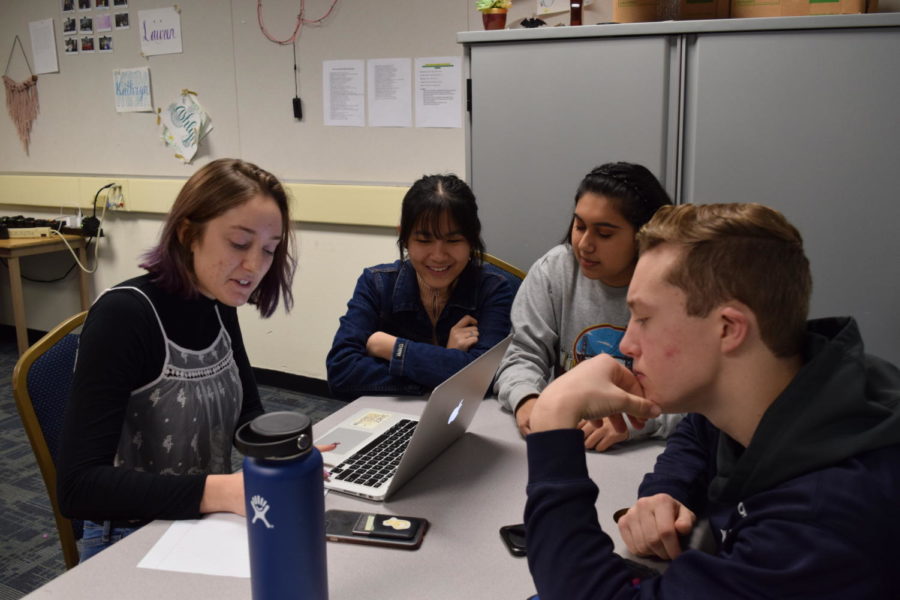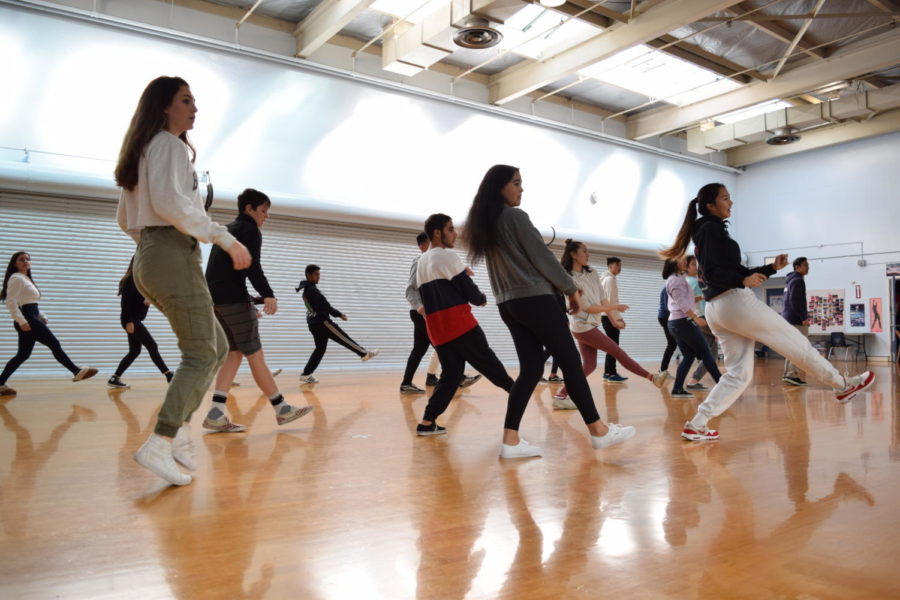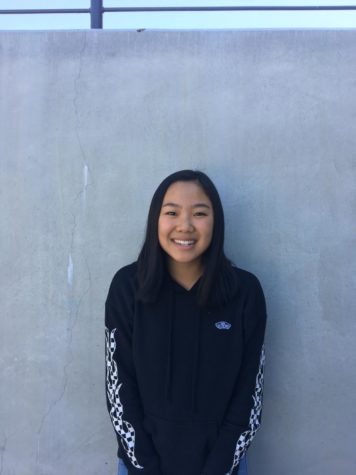Various commissions and clubs are working both together and separately to ensure Heritage Fair is a success.
This year, Heritage Fair covers the entire week from Feb. 25 to March 1 with lunch activities for the first half of the week, an assembly on Thursday, and food sales on Friday.
The preparation for the entire event is a combined effort of multiple groups. The Assemblies Commission works on the assembly and lunch activities, the Clubs and Culture Commission works on food sales, and the assorted clubs create their performances for the assembly.
“[The purpose of Heritage Fair] is to bring the Carlmont community closer together through our own individual diversity,” said Isabella Mattioli, a junior and the Clubs and Culture supervisor.
Victoria Tsinker, a senior and the president of Jewish Club, hopes to promote uniqueness and individuality when representing her culture.
“This year we will be focusing not just on our interactions with other religions and cultures, but on our history and the present time,” Tsinker said.
A club that participated in Heritage Fair last year was the Muslim Fellowship Club. This year, Hamza Abdelrahman, a sophomore, is in charge of the club’s participation in Heritage Fair. According to Abdelrahman, diversity and acceptance are core values of Islam, and he hopes to display those morals through their performance.
“Last year, we collaborated with the other major religious clubs at Carlmont, such as Christian Club and Jewish Club, but we will not be collaborating this year,” Abdelrahman said. “We would also really love to create a live performance rather than show another video.”
The Muslim Fellowship Club has made many efforts to unite the club members to prepare for the week-long event.
“Our club has dedicated weekly meetings to discuss and plan for our performance along with meetings outside of school to work toward our goal,” Abdelrahman said.
As club members are coming together and rehearsing, the Assemblies Commission is working on the assembly itself. At the moment, they have a clear vision of how the assembly will play out.
“My commission and I are responsible for contacting the performers, whether they are clubs or a part of our performing arts. We are also responsible for collaborating with different commissions within ASB,” said Edrina Hamzeh, a junior in the Assemblies Commission.
Before they came up with their plan, however, the commission had to overcome a challenge.
“One of our ideas for the assembly was not approved, and we had to come up with a different solution,” Hamzeh said.
Regarding the lunchtime activities, the Assemblies Commission are still uncertain of what they will do. They are focusing on perfecting the assembly before they shift their energy into planning the small activities.
Hamzeh said, “We hope to have the assembly be more about the clubs and their culture than the assembly itself.”
The food sales, another important component of Heritage Fair, is run by the Clubs and Culture Commission.
“We will send out emails to all culture clubs confirming they are selling food and making sure they fit nutrition requirements and figuring out the day-of logistics and layout,” Mattioli said.
Even though it seems like Assemblies and Clubs and Culture are the only two commissions running this event, there are others such as the Publicity Commission and the Multimedia Commission that also play a huge role.
“We are creating these really detailed paintings which are supposed to illustrate landscapes of different nations around the world. The paintings can take anywhere from three to five days depending on how intricate the scenes are,” said Turkan Kartal, a sophomore in the Publicity Commission. “I can’t say much about what the scenes are specifically supposed to be, but they do take a lot of work. We end up staying after school until around 5 p.m. every day, and we started planning right when we came back from winter break. ”
Despite the fact that the process has been relatively smooth and that the commission is ahead of schedule, the hard work has been time-consuming.
“It’s a little bit rough for us in that we don’t get the class periods to work on our Heritage Fair stuff. This is why we end up staying [during lunch]. Another thing that’s rough is that some people have some extracurriculars or other commitments which require them to grind extra hard when they stay after school and help,” Kartal said.
Another ASB commission that has been facing many struggles for the past few weeks is the Multimedia Commission. Their job is to take care of all the technical components, such as lighting, sound, and projectors.
“Media really likes going all out with lighting and sound, and we wanted to do just that for the assembly. But it turns out that the gym just won’t be able to handle the amount of power needed for our ideas to work. Now we have to think of an entirely new plan that will still be just as good,” said Carly Ramirez, a sophomore in the Multimedia Commission.
The new theme of the assembly calls for more advanced technology, which further challenges and pushes the Multimedia Commission out of their comfort zone.
“First, we have to figure out what supplies are needed to fit the theme and then see if it’s in our budget. Money has always been a huge issue and has held us back to carry through with many of our plans,” Ramirez said.
As for now, nothing is set in stone. The Multimedia Commission is still unsure on the exact course of action but is hoping they will be able to make a final decision before the big day.
In order for everything to run smoothly, everyone must also always keep constant communication.
According to Mattioli, communication is not their biggest worry, as their commission was friendly with most clubs before working under a professional setting. This initial relationship made it easier for the Clubs and Culture Commission to keep in touch with people.
Although the Heritage Fair is still weeks away, groups are already at work to prepare for the eventful week.
Every year, Heritage Fair is an event that is anticipated both by the students and the people involved. The excitement from the commissions and clubs are heightened this year because of all the new ideas and concepts that are being brought into the traditional event.
Tsinker said, “I am most looking forward to seeing everyone’s performance and their representation of their communities and cultures. It’s so interesting seeing how unique and special each heritage is.”




